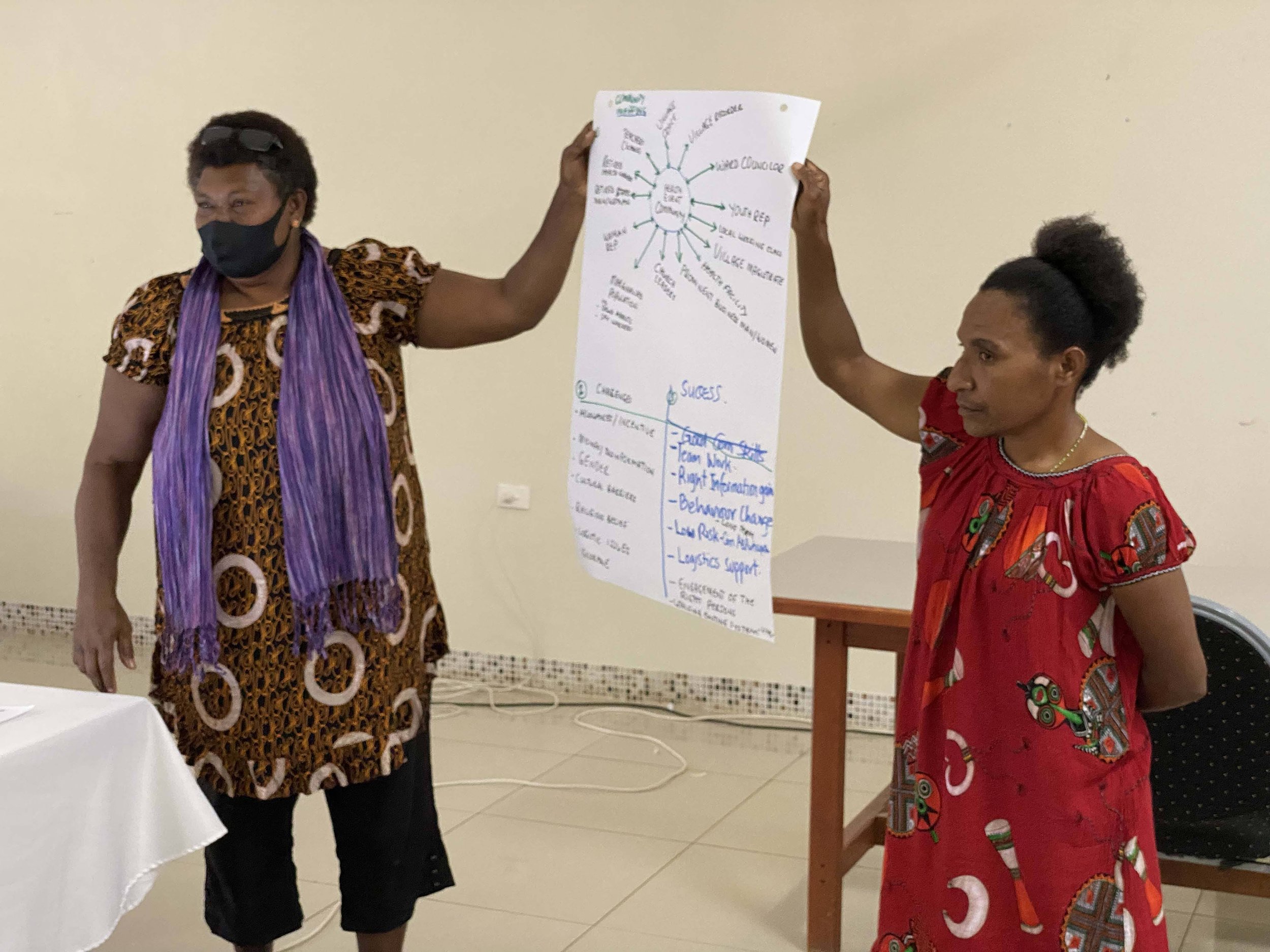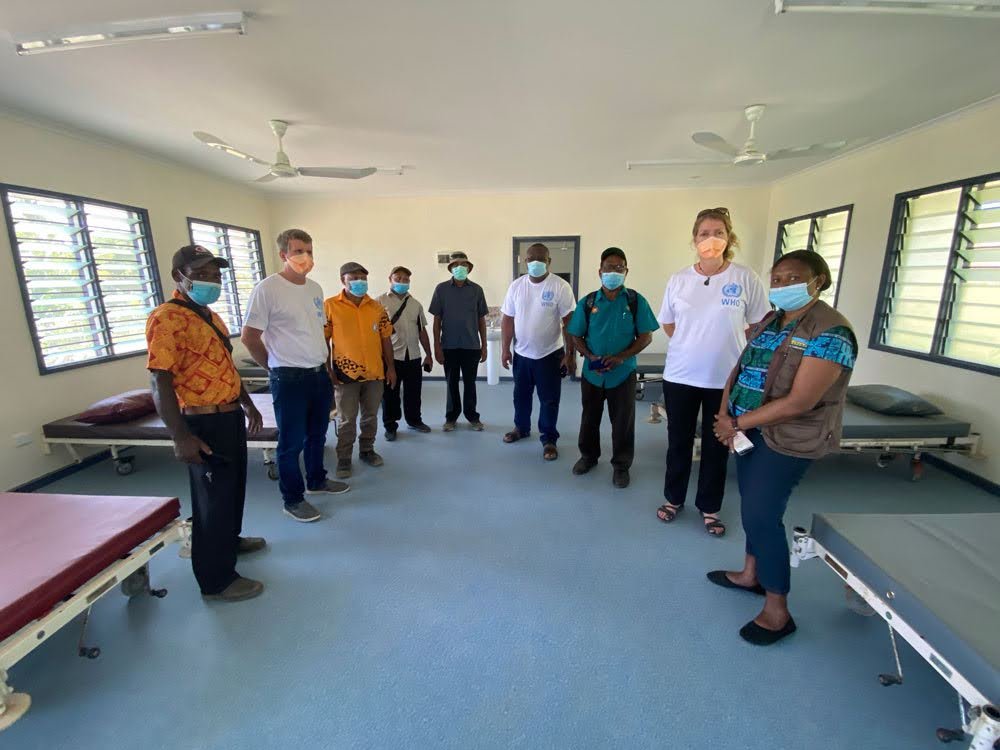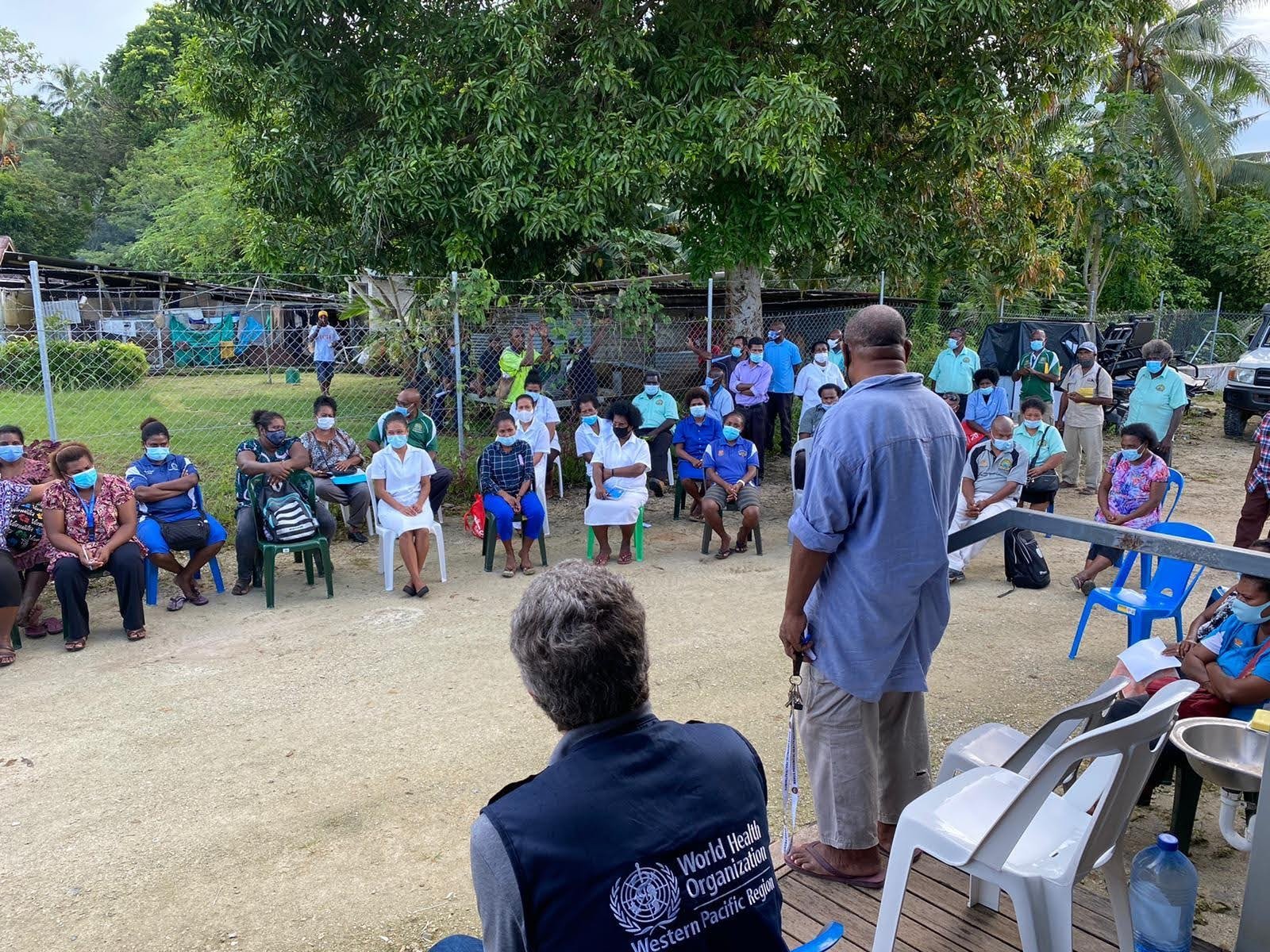The advanced Field Epidemiology Training Program in Papua New Guinea; a personal reflection
Written by James Flint - Program Coordinator at Field Epi in Action
The advanced Field Epidemiology Training Program (FETP) of Papua New Guinea started just before COVID-19. Despite almost getting derailed on several occasions during the pandemic, 17 proud graduates emerged 3 years later, graduation certificates in hand. It was a very emotional occasion for all; relief, joy and pride of what had been achieved over a turbulent few years.
PNG’s FETP programs are known to be tough. The advanced Fellows were all top performing graduates of the intermediate level FETP. On top of their regular jobs – mostly clinical and/or managerial – Fellows conducted a substantial operational research project, designed and implemented an evidence-based intervention, evaluated their intervention, lead outbreak investigations and evaluated surveillance systems. And, on top of that, they were front and centre in the national pandemic response, often in senior leadership roles within the province.
Stepping Up in the Pandemic Response
In 2021 and 2022 I was able to visit several fellows in their workplaces. Their contribution to public health during the pandemic was down-right amazing. Not only were they navigating the usual challenges of juggling their substantive roles with the demands of an advanced training program. They were doing it during a pandemic that had turned everything upside down. It was encouraging to hear how the FETP training had prepared them for the pandemic, and how proud they felt when their managers asked them to step into new pandemic response roles.
For me, the most remarkable thing wasn’t their ability to juggle so many things for so long, or the eagerness with which they stepped up during the pandemic. It was the challenges they faced in their personal lives – while doing everything else. A few Fellows opened up to me about these personal challenges. Several had lost partners or family members during the pandemic. Young men and women with young families. They explained how they tried to seek medical care and were unable to access or afford it. The grief of losing a spouse, the additional responsibility of suddenly becoming a single parent, grieving their loss while responding to a pandemic, attending to patients, and trying to make ends meet. None complained. If I hadn’t been sitting next to them having a casual conversation, I’d never have known. There are so many more stories of tragedy and hardship that lay hidden. It makes their achievements, and their commitment to serving others in their community, even more remarkable.
The advanced program pivoted and adapted to the pandemic. The flexibility of our funders, the Indo-Pacific Centre for Health Security (DFAT), allowed us to support Fellows throughout the response. During the ‘no-travel’ period, we held several webinars on COVID-19 and shared information and resources via our website. WHO-GOARN was instrumental in supporting the mobilization of several FEIA team members on multiple occasions in 2021 and 2022. Fellows undertook three national activities which provided intelligence to Papua New Guinea’s National Control Centre; (i) a swabbing survey of health care workers (to find out why so few COVID-19 swabs were being collected), (ii) a national vaccine hesitancy survey and (iii) an evaluation of COVID-19 surveillance in PNG. A number of fellows also adjusted their field projects to focus on COVID-19.
In partnership with Vital Strategies, Fellows were trained on public health policy during their final training workshop in September 2022. Drawing on the recommendations from their intervention projects, each fellow developed a policy brief with several key evidence-based recommendations. These briefs will be presented to program managers at the National Department of Health and senior executives in the Provincial Health Authorities. It was great to see the advanced program come full circle. Before the first workshop kicked off in 2019, there was a participatory workshop where program managers and technical partners at NDOH and WHO identified key priority areas for advanced Fellows to focus on. The partners also identified research questions under each key priority areas. Now, some 4 years later, there are 17 operational research projects, 17 interventions and 17 policy briefs that have responded to these priorities.
Program Highlights
We’ve previously shared blog posts from the fellows and faculty sharing their experiences in the field. They are well worth a read [Stanley, Beth, John, and others]. During the final workshop, we undertook an ‘exit’ evaluation. Here are some highlights.
The 17 fellows who graduated
· collectively investigated 55 outbreaks (42 of which they were lead investigators)
· completed 34 surveillance evaluations
· completed 17 operational research projects
· implemented and evaluated 17 evidence-based interventions
· wrote 17 policy briefs based on their intervention findings
· 82% were involved in the COVID-19 response
The fellows had lots of constructive feedback on how to improve the program. They expressed the need for further training on analysing and interpreting data, especially from analytic studies. When asked what ongoing support would be most beneficial to them now, here’s how they responded (in order of priority):
1. Additional training courses
2. FETPNG manual summarizing key field epidemiology content
3. Modest budget to support interventions
4. Ongoing mentoring
5. More supportive management
6. Short refresher videos on key field epidemiology skills
There’s more to be done to evaluate the true impact of the program, and this will be happen next year after the fellows have had several months back in their workplaces.
Conclusion
It’s been 9 years since the intermediate FETP started. Today there are over 100 fellows and graduates positioned across the country. There is an advanced FETP, and a new frontline FETP (which started this year). There’s positive momentum. It has taken time, and there is still much more to do. However, we are starting to see the FETP alumni rise into senior leadership positions, continue their operational research and intervention projects and lead major response activities. I have no doubt that it will be these FETP graduates who will play a significant role in transforming public health in PNG. They already are. Equipping local professionals to identify and solve their own local public health problems is where real change happens. It’s the only way. However, change won’t be quick. The scale of the public health challenges in PNG are truly enormous. PNG needs an army of field epidemiologists, and that’s what the NDOH is working towards. Field epidemiologists in every district interacting with communities, embedded in health centres, working in hospitals and health departments at every level of government. Together, this workforce will improve surveillance, lead outbreak investigations, strengthen health systems and improve health service delivery. The pandemic has negatively impacted many routine health services, including routine immunization and TB control programs. These fellows will be key in rebuilding these programs, and making them better than before.
There is so much more to say and share. However, let’s conclude with some reflections from the advanced FETP graduates:
“I was a clinical Health Extension Officer only dealing with sick and that's it. No idea on the importance of data and research. Since having Field Epidemiology Training, I excelled in leadership and understood the importance of data and evidence based decisions to prioritize public health activities. The training has done big to my career and have moved me from clinician to public health program at the province and now looking after the district public health program. It improved my speaking and leadership skills and to identify problems that affected communities. I now can plan well and attend to solve issues writing reports and identify outbreaks”
Advanced FETP Graduate at district level
“I was just a clinical Health Extension Officer and Vaccine Preventable Disease Surveillance Focal Person. Now I am Rapid Response Team Lead in the Provincial and COVID-19 Surveillance Cluster Lead. I am likely to be the next Provincial Disease Control Officer. This is significant because the training is relevant to what I am doing and has had impact… the Provincial Health Authority appreciates what I am doing now"
Advanced FETP Graduate at provincial level
“We manage to pull (from 84th place in 2017) into 25th placing out of 89 districts in certain indicators in PNG in the 2021 sector performance report for the National Department of Health in PNG…this (2017) was the time I was appointed as the District Health Manager for the district… I plan to pull into the top 5 starting this year onwards”
Advanced FETP Graduate at district level
About Field Epi in Action
We facilitate proven high impact intervention-based field epidemiology training, designed to develop work-ready graduates equipped with the necessary tools to support outbreak detection and response.







